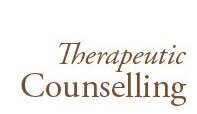“You may not control all the events
that happen to you,
but you can decide
not to be reduced by them.”
Maya Angelou
Photo by Gabriela Palai from Pexels
How I can help:
Therapeutic counselling for depression, anxiety, and traumatic stress related disorders caused by life situations out of your control like abuse. Counselling options available here:
• On-line remote sessions by telephone, on zoom or by email.
• ‘Walk & talk’ a circular walk allowing social distancing (walk locations by arrangement).
• Face to face 50 minute sessions (once protocols allow) in my Porth therapy room.
You don’t have to be alone with your life’s struggle.
While talking therapies are predominantly subjective, there is statistical evidence that supports therapeutic counselling is an effective treatment for depression, anxiety, and traumatic stress related disorders, alongside medical and social support.
What is therapeutic counselling?
Counselling is a talking therapy - the therapeutic process that supports self-discovery, restoring personal choice, building resilience, and in the long term: autonomy, the freedom to be self-directive and independent, or not (by choice). There are many styles of therapy, I offer an humanistic psychological approach based on Person-centered therapy, alongside complimentary psychological techniques where appropriate.
Does Talking Therapy work? Yes, it can. Talking therapy can benefit all walks of life, however, there isn’t one universal therapeutic method that works for all problems - people are unique and respond individually. Prof. Mick Cooper’s ‘Essential Research Findings in Counselling and Psychotherapy: The Facts are Friendly’ (Cooper, 2008) offers quantitative (and qualitative) research that emphasises the therapist/client relationship is crucial to the effectiveness of talking therapy. Talking therapy can not only support management of an individual’s condition, but ease stress for their partners, families, friends and colleagues too. There are peer reviewed study results in the BMJ that ‘cautiously’ support talking therapies are as effective as medication, however, Amick et. al (2015) explain clinicians’ support of talking therapies alongside medical support rather than instead of. Concluding “both treatments should be made accessible, either alone or in combination” suggesting the final choice should be the individual’s preference (which suits them best).
Therapeutic counselling aims to facilitate clients while they unravel problem behaviours, beliefs, feelings and relationship issues. Although the terms counselling and psychotherapy are often used interchangeably, the difference between psychotherapy and psychological counselling is usually the duration of the therapy. Psychotherapy is probably more long-term, while counselling tackles a broader range of issues.
Therapeutic counselling typically addresses everyday issues that build up, become overwhelming, and are so stressful they’d benefit from counselling support. There are three dimensions to a client’s problems: automatic internal thoughts and feelings (both positive and negative), relationship issues, and developmental life stage issues. For example: one can have a ‘knock-on’ effect across all three dimensions, low self-esteem might result in unpracticed social skills, causing poor career progression. Talking therapy tackles common mental health and other psychological problems like Depression, Generalised Anxiety Disorder (GAD) and Stress, Self-harm, Bereavement, Substance abuse, Addictive behaviours, OCD, Phobias and Abuse. The causation may be ‘explicit’ bereavement for example, or ‘implicit’, where a client is unaware of how or why “things just keep happening the same way to me”. Implicit behaviours are by their nature more complex to unravel.
Humanistic therapists don’t have a magic wand. From the outset the sessions will be an exploration. Initially asking “What do you want to gain from the sessions?”, you may not know yet, you simply know things aren’t right the way they are. At the very beginning, a shared contract is established between the counsellor and client outlining all the boundaries, especially in relation to confidentiality and trust (legal exceptions will also be outlined), and the most suitable therapeutic modality and goals. This may be the first time thoughts and fears are aired aloud - this is an opportunity to be truly heard, nothing will be judged - where trust is earned and demonstrated.
Length and number of sessions? Sessions usually last for 50 minutes, and happen at the same time on a weekly basis. While the number of sessions is open, by the first six-eight sessions it will become clearer how well the therapy is developing. Short term counselling usually lasts for approximately 10-12 sessions and suits everyday life challenges causing anxiety and stress. Long term counselling 24+ sessions are more suited to complex abuse and trauma, and those wanting to examine and develop personal awareness. New client’s experiences or preconceptions of the counselling process need to be discussed to determine any unrealistic expectations, allowing therapist and client to work towards a shared therapeutic goal. Quantifying the value or success of the sessions either along the way or at the beginning/end helps demonstrate the benefits of the therapy, using a working alliance form helps monitor growth in a tangible way to reflect progress. Please contact me to book an appointment or for further details.
If you are in distress and require immediate psychological support contact the Samaritans free from any phone 116 123.

